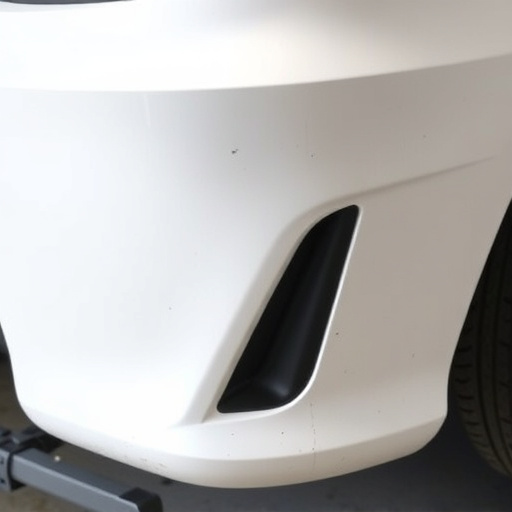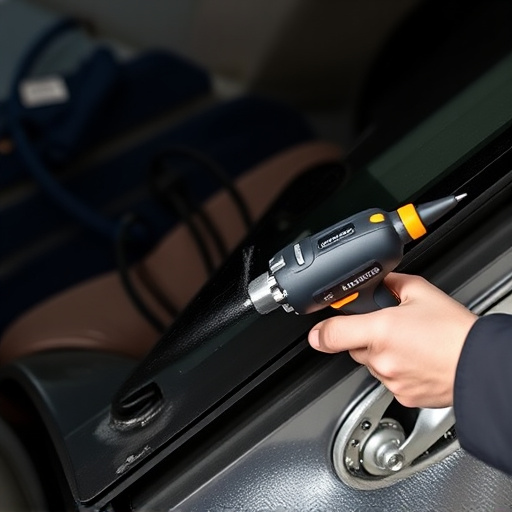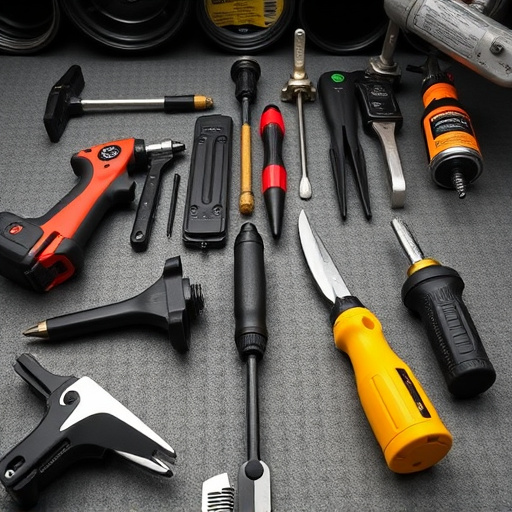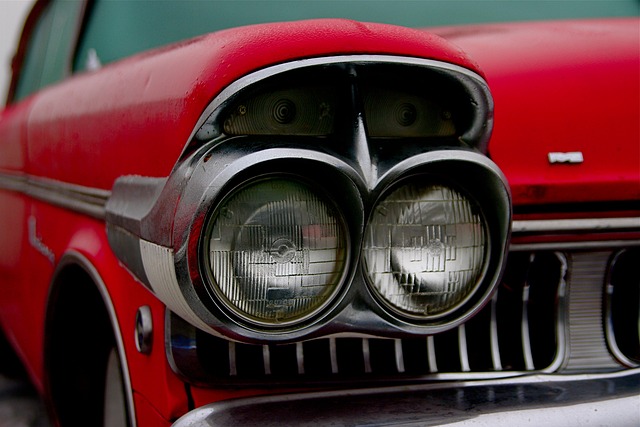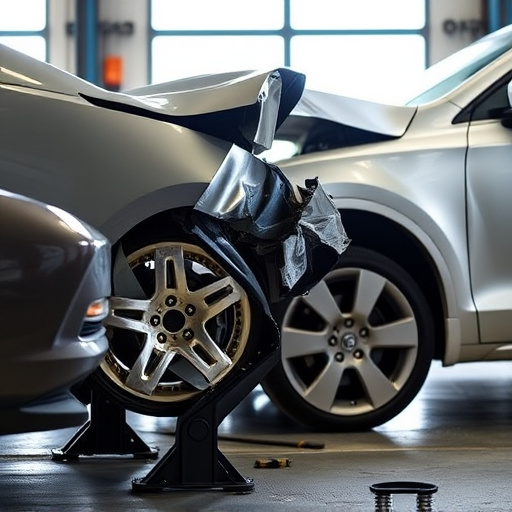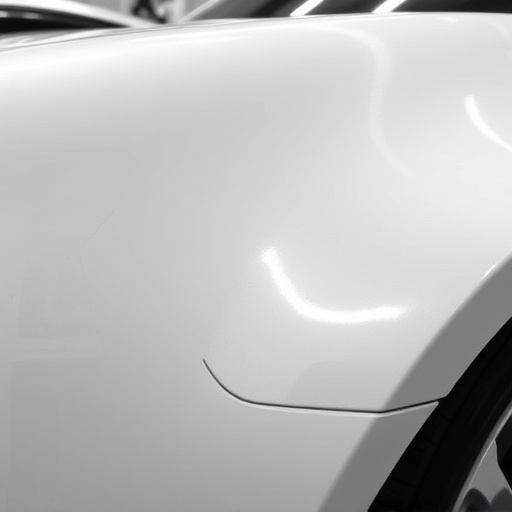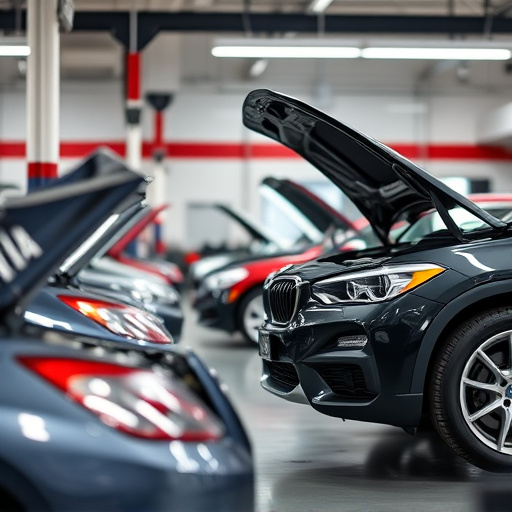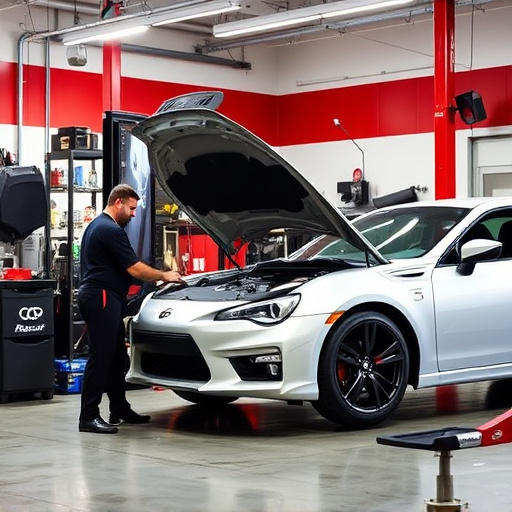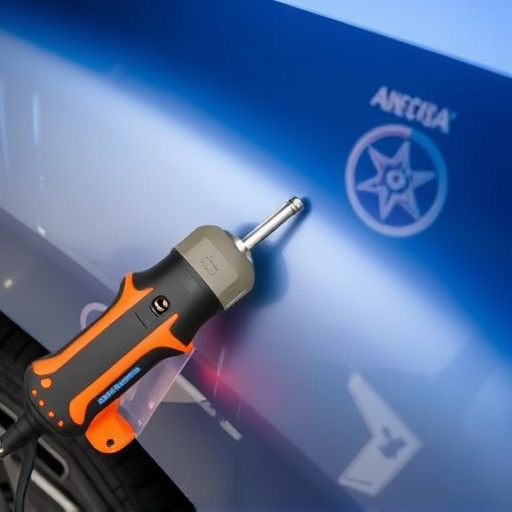Corrosion protection for fleet and commercial vehicles involves a multi-faceted approach combining regular washing, degreasing, protective coatings, preventative maintenance, and professional auto repair services. Choosing the right corrosion-resistant coatings and maintaining a rigorous routine prolongs vehicle lifespans, ensuring reliability, safety, and operational efficiency in diverse weather conditions.
In the relentless pursuit of optimal vehicle performance, corrosion protection emerges as a non-negotiable aspect for fleet and commercial vehicles. This article delves into the intricate world of corrosion, exploring its detrimental effects on these essential assets. We uncover strategic solutions, providing insights on effective corrosion protection methods. From understanding the science behind corrosion to selecting the ideal coatings and implementing robust maintenance routines, this guide equips fleet managers with the knowledge needed to safeguard their vehicles against this relentless enemy.
- Understanding Corrosion and Its Impact on Vehicles
- Strategies for Effective Corrosion Protection
- Choosing the Right Coatings and Maintenance Practices
Understanding Corrosion and Its Impact on Vehicles
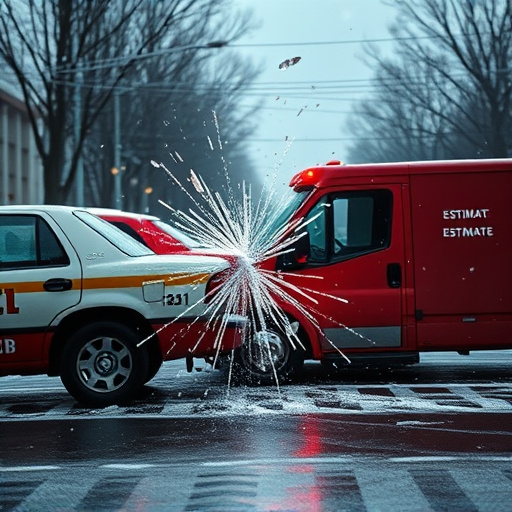
Corrosion is a natural process that occurs when certain metals interact with substances present in the environment, leading to their deterioration over time. In the context of fleet and commercial vehicles, this can manifest as rust on metal components, which weakens structural integrity and reduces vehicle lifespan. Impacted parts may include underbody panels, frames, and even tires, compromising safety and performance.
Regular vehicle maintenance, including inspections and auto body services, plays a vital role in corrosion protection. Identifying and addressing issues early can prevent further damage. From routine tire services to specialized automotive repair, these measures ensure vehicles remain reliable and safe on the road. By understanding the specific challenges posed by various climates and environments, fleet managers can implement effective strategies to safeguard their assets, ultimately minimizing downtime and maximizing operational efficiency.
Strategies for Effective Corrosion Protection

Corrosion protection is a multifaceted strategy that involves several key strategies to safeguard fleet and commercial vehicles from the relentless effects of rust and deterioration. One effective approach is regular washing and degreasing, removing dirt and grime that can accelerate corrosion. Additionally, applying protective coatings, such as epoxy or polyurethane, creates an impenetrable barrier against moisture and extreme weather conditions.
For vehicles that are frequently in operation, preventative maintenance is paramount. This includes routine inspections to identify and address any signs of rust or damage early on, along with timely replacement of worn-out parts. Considering the specialized nature of fleet and commercial vehicles, enlisting the services of a reliable auto repair shop for comprehensive corrosion protection can be invaluable. Services like auto glass replacement and vehicle restoration are also crucial components in maintaining these vehicles’ structural integrity and aesthetic appeal over time.
Choosing the Right Coatings and Maintenance Practices

Selecting the appropriate coatings and maintenance routines is a pivotal step in safeguarding fleet and commercial vehicles from the relentless effects of corrosion. These vehicles, often exposed to varying weather conditions and demanding operational environments, necessitate robust protection. Therefore, choosing high-quality, corrosion-resistant coatings tailored to specific vehicle types and operating conditions is paramount.
Regular maintenance plays an equally critical role in corrosion protection. Auto repair shops and collision repair shops specializing in vehicle collision repair emphasize routine inspections, prompt repairs, and adherence to recommended maintenance schedules. By addressing potential vulnerabilities early on, such as small dents or scratches that could lead to rust formation, these practices significantly extend the lifespan of vehicles, ensuring optimal performance and minimizing downtime for commercial operations.
In summary, effective corrosion protection is paramount for maintaining fleet and commercial vehicles. By understanding the causes and impact of corrosion, implementing robust strategies, and selecting appropriate coatings alongside meticulous maintenance practices, vehicle owners can significantly extend their assets’ lifespans and reduce downtime. Investing in corrosion protection isn’t just about preserving metal; it’s a key strategy to ensure operational efficiency, enhance safety, and maximize return on investment for businesses relying on their vehicle fleets.
